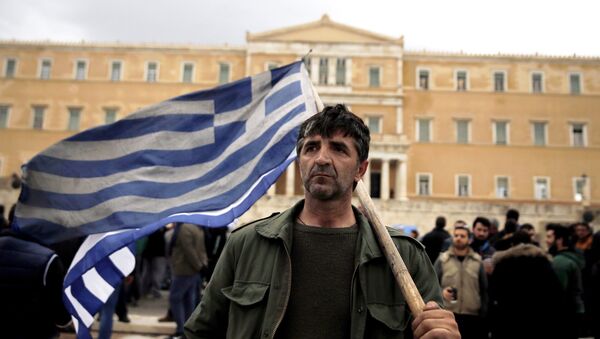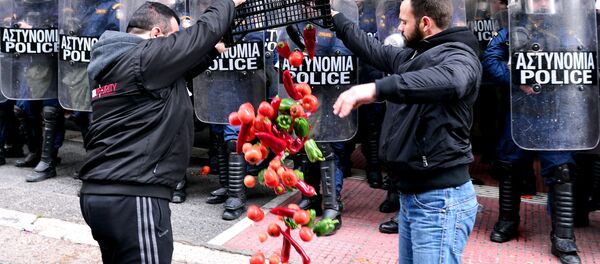Greece has been forced to implement a deeply unpopular set of austerity measures by its creditors — the European Central Bank (ECB) the International Monetary Fund (IMF) and the European Commission, known as the Troika — and is awaiting the latest assessment of its plans.
However, despite sending the Troika details of its latest pension reforms, Athens has heard nothing following disagreement between the EU and the IMF.
"Negotiations on the reform plan have fallen behind, which is in nobody's interest. To date we have had no official response from the institutions, which is due to disagreements at their heart," Tsipras said.
There have been disagreements within the Troika ever since Greece was offered a huge US$95 billion bailout loan over three years to prevent it from crashing out of the Eurozone.
The IMF did not take part in what has become known as the third Greek bailout. In its assessment, the IMF said: "Greece's public debt has become highly unsustainable. Greece's debt can now only be made sustainable through debt relief measures that go far beyond what Europe has been willing to consider so far".
IMF will support Greece and its European partners in developing a program of reforms and debt relief that adds up https://t.co/oHnCavAYXz
— IMF (@IMFNews) February 12, 2016
The reforms demanded under the terms of the bailout include massive reforms of the Greek state pension scheme, which was seen as over-generous and unsustainable as well as the phasing out favorable tax treatments for ship-owners or farmers, or a myriad of exemptions, with some islands on low or even zero VAT rates.
In Greece, fantasy persists that Germany will be lenient on pensions in return for help on migration. Reality: no linkage, IMF is key.
— Marcus Walker (@MMQWalker) February 12, 2016
Poles Apart
In its assessment of the bailout, in August 2015, The European Commission glowingly reported: "The disbursement of funds is linked to progress in delivery of policy conditions, in accordance with the MoU.
However, the result has driven Greece back into recession and has resulted in demonstrations and strikes, with talk of it being made to exit the Eurozone. In his latest assessment of the situation, Poul M. Thomsen, head of the UMF's Europe division said:
"No amount of pension reforms will make Greece's debt sustainable without debt relief, and no amount of debt relief will make Greece's pension system sustainable without pension reforms. Both need to come about. There is no doubt that both Greece and its European partners will face politically difficult decisions in the coming months to arrive at a program that is viable-one that adds up."
With Tsipras warning of disagreements and the assessments of both the European Commission and the IMF being at odds with each other, the future for Greece within the Eurozone continues to look bleak.



